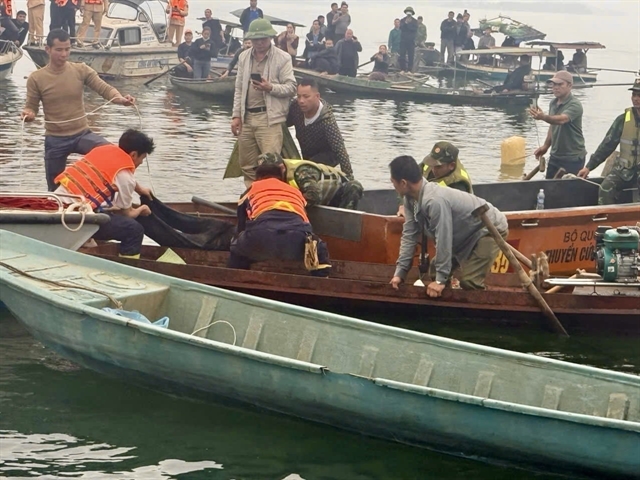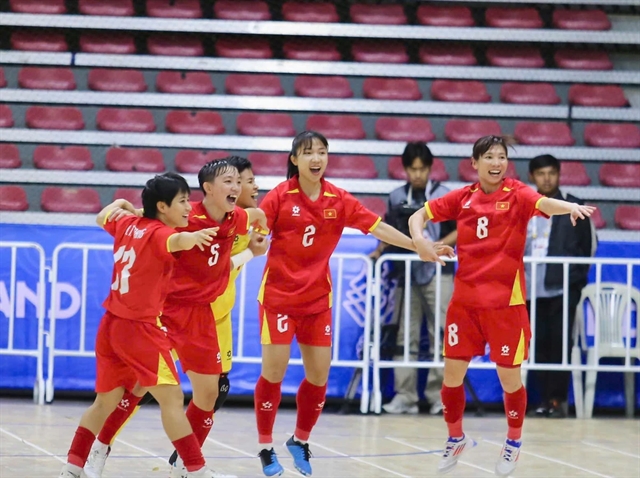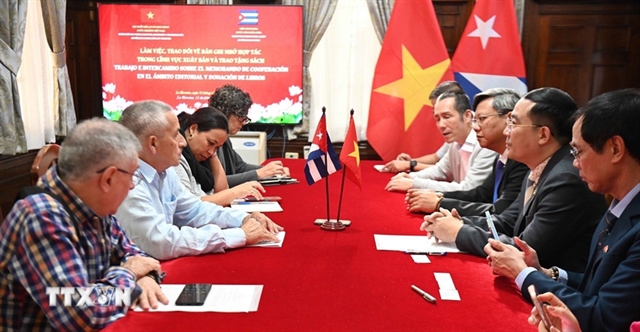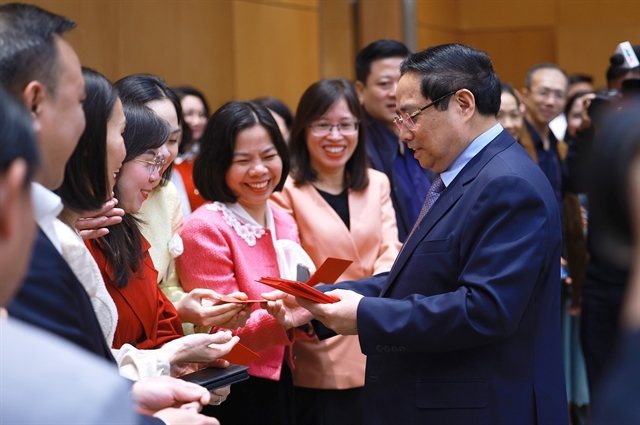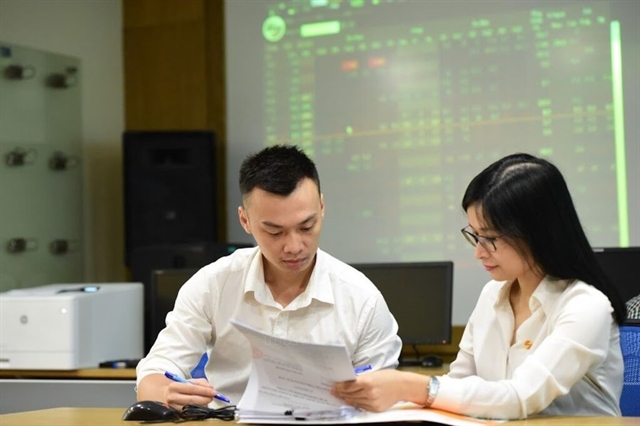 Economy
Economy
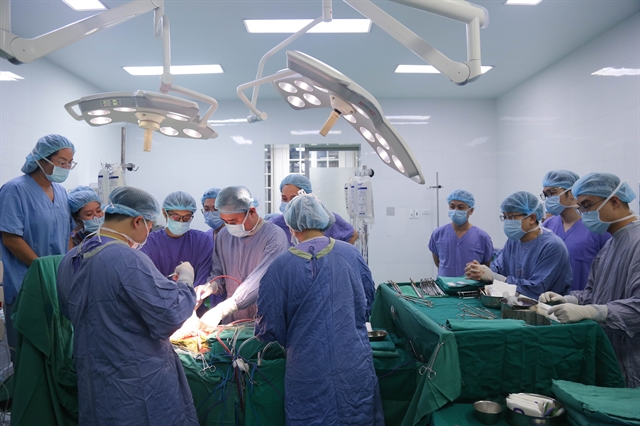
The VASEP (Việt Nam Association of Seafood Exporters and Producers) Marine Product Committee and Vietnamese seafood processors and exporters on Monday promised to implement the EU’s demands on fighting IUU (illegal, unreported and unregulated) fishing and the national action plan to combat IUU fishing.
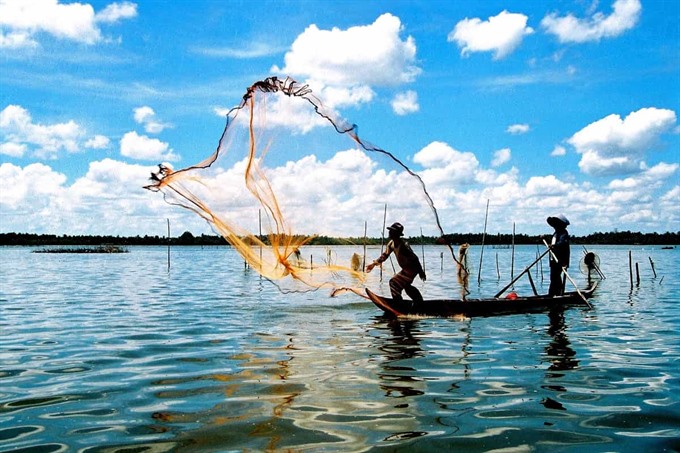 |
| Members of the Việt Nam Association of Seafood Exporters and Producers on September 25 pledges to buy raw materials only from legal fishing vessels with clear traceability and importing only legally caught seafood. — Photo moit.gov.vn |
HCM CITY — The VASEP (Việt Nam Association of Seafood Exporters and Producers) Marine Product Committee and Vietnamese seafood processors and exporters on September 25 promised to implement the EU’s demands on fighting IUU (illegal, unreported and unregulated) fishing and the national action plan to combat IUU fishing.
Speaking at a conference titled "Marine product enterprises commit to combating IUU fishing" in HCM City, Nguyễn Thị Thu Sắc, VASEP’s deputy chairwoman and chairwoman of the VASEP Marine Product Committee, said: “We are committed to buying raw materials only from legal fishing vessels with clear traceability and importing only legally caught seafood.
“We are resolute about not buying catches sourced from fishing vessels operating without a permit, logbook or report in accordance with regulations or fishing using prohibited gear.
“We say no to protected species and catches smaller than the minimum size.”
Nguyễn Hoài Nam, VASEP’s deputy secretary, said its members are aware of the importance of the IUU regulations and realise that the fight against IUU would be a long-term process that needs active and regular participation by seafood businesses.
Strictly implementing the IUU regulations is an important step in preventing Vietnamese seafood from being warned or prohibited from selling to key markets such as the EU and US, he said.
Việt Nam could be penalised by the EU with a "yellow card" if it does not promptly and fully adhere to the requirements on fighting IUU fishing, which are related to the five recommendations made by a Directorate-General for Maritime Affairs and Fisheries (DG MARE) working group following a review last May in Việt Nam.
If a country gets a yellow card, it creates nervousness among EU retailers about seafood imported from that country, and they may look elsewhere to buy.
Other import markets will also strengthen checks of seafood exported by that country.
If the country gets a red card, its seafood products will be banned in the EU.
Sắc said, “We are fully aware that it is vital for us to comply with all IUU regulations in various markets.”
This is an opportunity for official agencies, fishermen and seafood processors and exporters to take a deeper look into the issue and reorganise fishing activities in a sustainable and effective manner to emphasise the prestige of Vietnamese seafood exports, she said.
VASEP’s Steering Committee of fisheries enterprises on combating IUU was unveiled at the conference the same day.
The committee and the VASEP office would set up an IUU task force that would work closely with the Ministry of Agriculture and Rural Development, the Directorate of Fisheries and other State agencies to address short-term and long-term issues in the programme on combating IUU fishing, Sắc said.
Việt Nam earns US$1.9-2.2 billion from exports of marine products annually, with the US and EU accounting for $350-400 million each. — VNS

